FIFA World Cup 2018: TV still trumps online for fans
When it comes to watching football’s biggest tournament, TV still chalks up the most points. Ninety-four per cent of British football fans will watch the 2018 Football World Cup on television from June 14, compared to less than a third (29 per cent) who will stream the matches live on a desktop or laptop. The research, published by growth marketing company DCMN, also reveals that fans will significantly increase their TV viewing during the tournament, with six out of 10 predicting they will watch more TV over the next month.
The international study, conducted in May 2018, surveyed more than 5,000 people in the UK, France, Germany, the US and South Africa to gauge differences in their viewing habits in the lead up to the tournament. It reveals that the country with the highest interest in the competition is outgoing champions Germany (91 per cent will watch at least some of the matches), closely followed by the UK (86 per cent).
TV remains the No. 1 medium for football fans
When it comes to watching the competition, TV is the medium of choice for British football fans (94 per cent). Smaller screens are much less common: less than one-third will watch the game on a computer (29 per cent) and around a quarter on a smartphone or tablet (26 per cent).
More interesting is the predicted change in viewing habits over the course of the World Cup. Almost two-thirds of fans (60 per cent) predict they will watch TV more than usual, including 10 per cent who will watch the medium though they usually do not. Furthermore, around a third (34 per cent) will watch more pay TV services and around the same amount (33 per cent) expect to stream video online more frequently.
Also of note is how the games will affect social media use. About a third (38 per cent) expect to post more frequently over the course of the tournament, while 44 per cent say they will use social channels the same amount as usual. Social media also does not seem to be the most popular outlet for expressing emotions about the tournament, with only a quarter (24 per cent) expected to express their joy (or frustration) on their social accounts.
Some good news for brands (and sponsors)
While only a quarter of fans (26 per cent) think advertising during the World Cup makes a brand more attractive, the event has a significant branding effect. UK respondents named Coca Cola (26 per cent) and Adidas (20 per cent) – both official partners of the event – as the brands they associate most with the World Cup. Interestingly, almost as many fans (19 per cent) link Nike with the event as they do Adidas, even though the company is not an official sponsor.
Anja Kettern, Global Head of Insights at DCMN, commented, “These results show that when it comes to major events such as the Football World Cup, television still lands at the top of the ladder for both viewers and advertisers. It also shows the significant brand building effect of being present on TV during this time, as two-thirds of respondents were able to name a brand that they associate with football’s biggest event.”
How and where we watch shapes our game experience
In addition to changes in media consumption, the survey also asked about other habits during the World Cup. In general, nothing quite beats celebrating the football tournament in good company: 68 per cent will invite others over to watch the games at home and 30 per cent will watch at a friend’s place. Pubs are also a drawcard, with 39 per cent planning to watch some games there. On the other hand, less than a quarter (22 per cent) will follow the updates on social media.
Among those choosing not to watch the World Cup, their alternative activity may come as a surprise: 50 per cent plan to spend their time reading instead, while roughly the same amount (53 per cent) will surf the Internet. And generally the Brits don’t have the healthiest of viewing habits: nearly half (44 per cent) will cheer on their team while drinking lots of beer and around a third (33 per cent) expect to eat lots of junk food during the games, while just 4 per cent plan to do sports rather than watching the tournament itself.



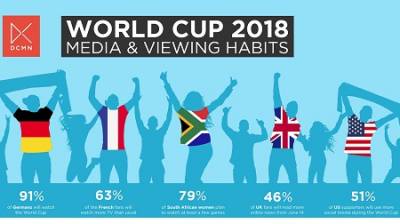
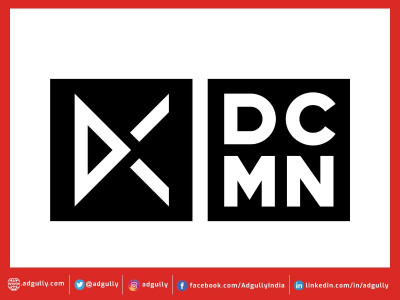
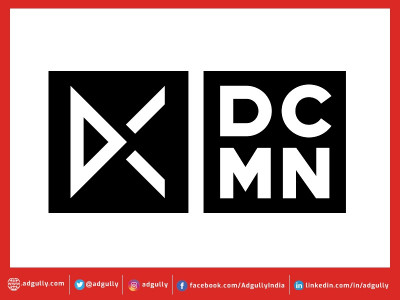





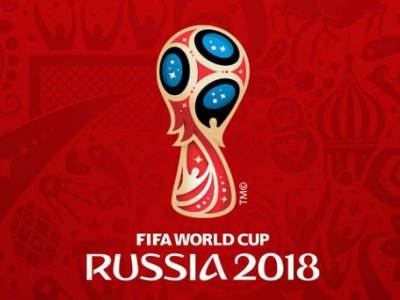
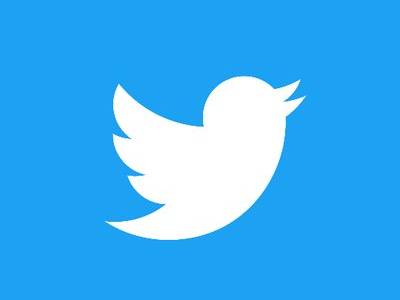
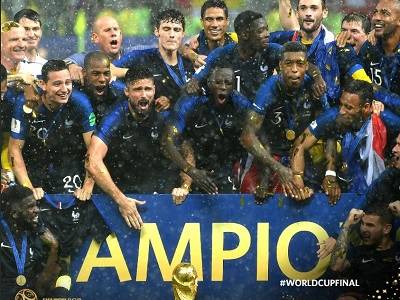




Share
Facebook
YouTube
Tweet
Twitter
LinkedIn